Honda CR-V vs Lexus NX - Differences and prices compared
Compare performance (184 HP vs 309 HP), boot space and price (42800 £ vs 46000 £ ) at a glance. Find out which car is the better choice for you – Honda CR-V or Lexus NX?
Costs and Efficiency:
Price and efficiency are often the first things buyers look at. Here it becomes clear which model has the long-term edge – whether at the pump, the plug, or in purchase price.
Honda CR-V has a hardly perceptible advantage in terms of price – it starts at 42800 £ , while the Lexus NX costs 46000 £ . That’s a price difference of around 3257 £.
Fuel consumption also shows a difference: Honda CR-V manages with 0.90 L and is therefore decisively more efficient than the Lexus NX with 2.90 L. The difference is about 2 L per 100 km.
As for electric range, the Honda CR-V performs slight better – achieving up to 79 km, about 7 km more than the Lexus NX.
Engine and Performance:
Under the bonnet, it becomes clear which model is tuned for sportiness and which one takes the lead when you hit the accelerator.
When it comes to engine power, the Lexus NX has a significantly edge – offering 309 HP compared to 184 HP. That’s roughly 125 HP more horsepower.
In acceleration from 0 to 100 km/h, the Lexus NX is significantly quicker – completing the sprint in 6.30 s, while the Honda CR-V takes 9 s. That’s about 2.70 s faster.
In terms of top speed, the Lexus NX performs minimal better – reaching 200 km/h, while the Honda CR-V tops out at 195 km/h. The difference is around 5 km/h.
Space and Everyday Use:
Cabin size, boot volume and payload all play a role in everyday practicality. Here, comfort and flexibility make the difference.
Both vehicles offer seating for 5 people.
In curb weight, Lexus NX is slight lighter – 1805 kg compared to 1821 kg. The difference is around 16 kg.
In terms of boot space, the Honda CR-V offers a bit more room – 617 L compared to 545 L. That’s a difference of about 72 L.
In maximum load capacity, the Honda CR-V performs a bit better – up to 1710 L, which is about 274 L more than the Lexus NX.
When it comes to payload, Lexus NX minimal takes the win – 515 kg compared to 475 kg. That’s a difference of about 40 kg.
Who comes out on top?
Overall, the Honda CR-V shows itself to be outperforms in nearly all aspects and secures the title of DriveDuel Champion.
It convinces with the more balanced overall package and proves to be the more versatile choice for everyday use.
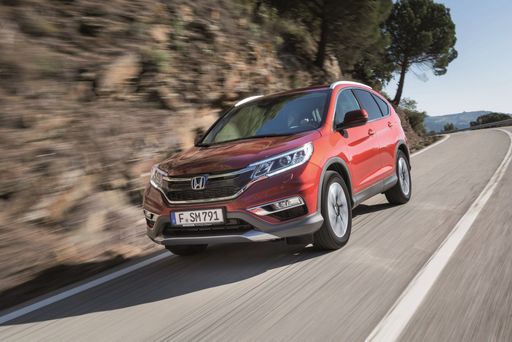
Honda CR-V
Costs and Consumption
View detailed analysis
Engine and Performance
View detailed analysis
Dimensions and Body
View detailed analysis
Honda CR-V
The Honda CR-V blends sensible practicality with a polished feel, offering roomy interiors and a confident ride that keeps commutes and weekend escapes equally comfortable. Its unshowy styling and reliable reputation make it a smart, low‑drama choice for buyers who want versatility without fuss — the kind of car that quietly makes everyday life a little easier.
details

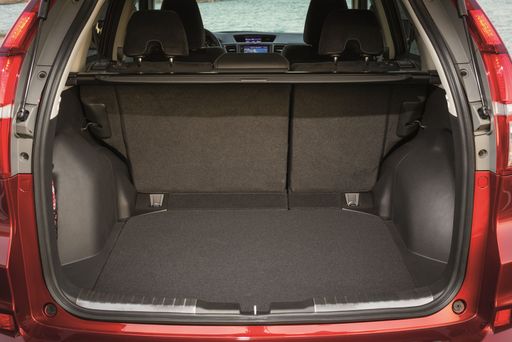
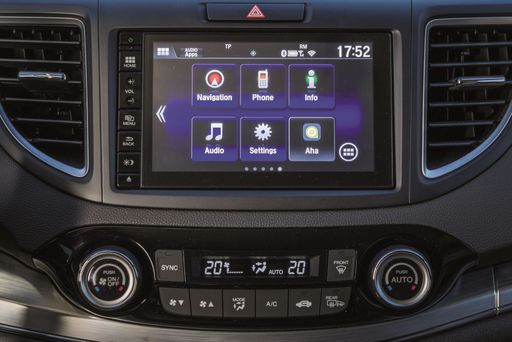
Lexus NX
The Lexus NX wraps striking, chiseled styling around a cabin that feels more crafted living room than utility vehicle, with soft materials and user-friendly tech that give it genuine premium cachet. On the road it's composed and quietly confident, trading sporty pretensions for a refined, easygoing personality that will suit buyers who want luxury without fuss — with a little Lexus flair to make daily commutes feel special.
details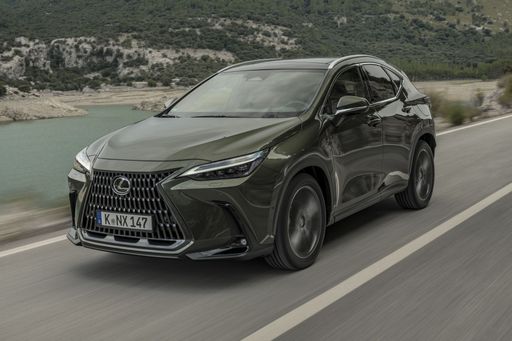
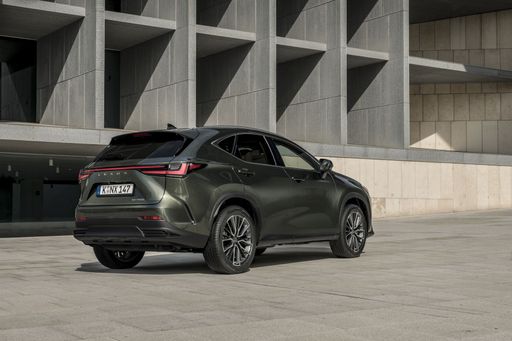
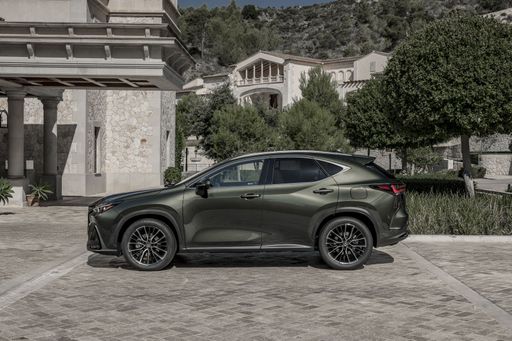
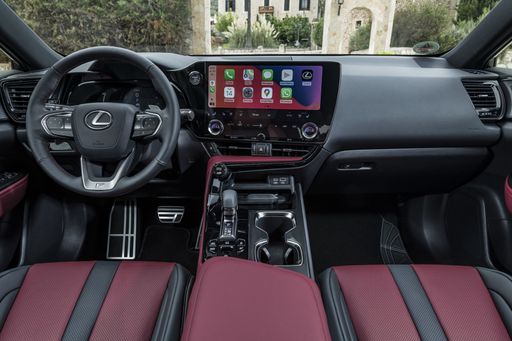
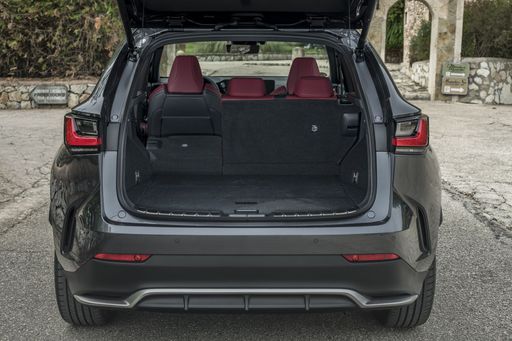
Costs and Consumption |
|
|---|---|
|
Price
42800 - 52100 £
|
Price
46000 - 64300 £
|
|
Consumption L/100km
0.9 - 6.7 L
|
Consumption L/100km
2.9 - 5.9 L
|
|
Consumption kWh/100km
-
|
Consumption kWh/100km
-
|
|
Electric Range
79 km
|
Electric Range
72 km
|
|
Battery Capacity
-
|
Battery Capacity
-
|
|
co2
19 - 152 g/km
|
co2
65 - 134 g/km
|
|
Fuel tank capacity
46 L
|
Fuel tank capacity
55 L
|
Dimensions and Body |
|
|---|---|
|
Body Type
SUV
|
Body Type
SUV
|
|
Seats
5
|
Seats
5
|
|
Doors
5
|
Doors
5
|
|
Curb weight
1821 - 1988 kg
|
Curb weight
1805 - 2065 kg
|
|
Trunk capacity
579 - 617 L
|
Trunk capacity
545 L
|
|
Length
4706 mm
|
Length
4660 mm
|
|
Width
1866 mm
|
Width
1865 mm
|
|
Height
1673 mm
|
Height
1670 mm
|
|
Max trunk capacity
1710 L
|
Max trunk capacity
1436 L
|
|
Payload
439 - 475 kg
|
Payload
475 - 515 kg
|
Engine and Performance |
|
|---|---|
|
Engine Type
Plugin Hybrid, Full Hybrid
|
Engine Type
Full Hybrid, Plugin Hybrid
|
|
Transmission
Automatic
|
Transmission
Automatic
|
|
Transmission Detail
CVT
|
Transmission Detail
CVT
|
|
Drive Type
Front-Wheel Drive, All-Wheel Drive
|
Drive Type
Front-Wheel Drive, All-Wheel Drive
|
|
Power HP
184 HP
|
Power HP
244 - 309 HP
|
|
Acceleration 0-100km/h
9 - 9.5 s
|
Acceleration 0-100km/h
6.3 - 8.7 s
|
|
Max Speed
195 km/h
|
Max Speed
200 km/h
|
|
Torque
335 Nm
|
Torque
-
|
|
Number of Cylinders
4
|
Number of Cylinders
4
|
|
Power kW
135 kW
|
Power kW
179 - 227 kW
|
|
Engine capacity
1993 cm3
|
Engine capacity
2487 cm3
|
General |
|
|---|---|
|
Model Year
2024 - 2025
|
Model Year
2025
|
|
CO2 Efficiency Class
B, D, E
|
CO2 Efficiency Class
D, B
|
|
Brand
Honda
|
Brand
Lexus
|
What drivetrain options does the Honda CR-V have?
The Honda CR-V is available as Front-Wheel Drive or All-Wheel Drive.




